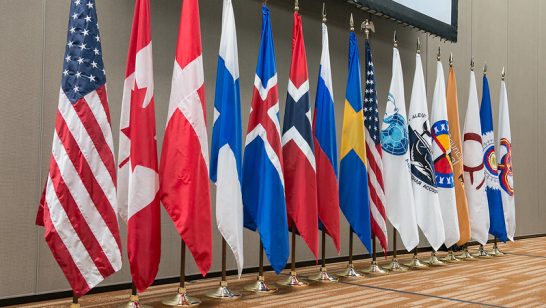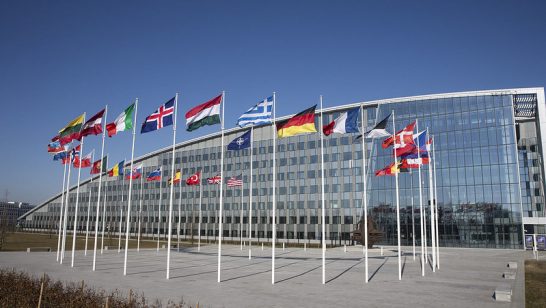
Non-aligned or only militarily not allied? This has been the basic question in Finland’s security policy since the country joined the European Union in 1995. According to some, the country did not lose its neutrality when joining the EU, as the Union is not a military alliance. Others see the EU as a union with a developing common foreign and security policy (CFSP), although so far mostly on paper, and consequently Finland as a part of a future defence alliance. The more recent developments in the EU’s CFSP as defined in the Lisbon Treaty have therefore been studied carefully in Finland. The Lisbon provisions are still seen by most only as political and cannot be compared to Article V of the North Atlantic Treaty. In general, therefore, for its defence Finland relies only on its national military capabilities and does not expect any help from outside the country in case of an armed attack.
Periodic Finnish Security Reviews usually argue that the “NATO option” is open and, indeed, this is an accurate statement of the official position. NATO itself has repeatedly stated its willingness to welcome the country as a member, provided that the population supports the membership. This has not been the case to date, however. The majority of Finns have so far opposed joining any military alliance. Neither the Finnish government nor the major political parties have for the most part been advocating a formal application. Today, even those politicians who support Finland in NATO deem it politically astute to say that any decision on membership should be deferred until after the next elections in the spring of 2015. The hesitancy on NATO membership extends to that level of the Presidency which is still, according to the Finnish constitution, the most powerful institution in foreign and security policy making. Since leaving the office, former president Ahtisaari has been acting as a supporter of Nato membership, while Tarja Halonen, as president, made clear she was opposed to membership and highlighted that no move in that direction were made while she was in office.
The crisis in Ukraine however, has changed fundamentally the dynamics of the Finnish NATO debate. For many, it has been a wakeup call as much for Finland as for the whole of Europe. European borders are not, it now seems, sacred, not even the Ukrainian borders which were guaranteed by Russia and the US in 1994 when Ukraine abolished its nuclear weapons. The seizure of Crimea and the conflict in Eastern Ukraine have proved to many that Russia is a military threat to its neighbours. The rhetorical mantra in Finnish security policy, that Russia is not a military threat but only an unpredictable superpower, seems to have been proved wrong. This has created serious concerns about Russian- Finnish relations. A core question for Finland now is how to navigate between maintaining friendly relations with Russia on the one hand and supporting the EU (of which Finland is a member) in its policy of isolating Russia economically on the other.
The NATO debate has also reached a new level of prominence. The policy of an independent and solid defence, the bedrock of Finnish security for decades, is now more openly called into question. Many more now ask, in the face of Russian aggression, could Finland defend itself, and for how long? In this context, more and more citizens are starting to ask the question: should we join NATO? The leading party, the Conservatives, has come out openly in favour of the membership. Its newly elected leader and the new prime minister, Alexander Stubb, is effectively leading the campaign for joining the Alliance.
That said, his coalition partner the Social Democrats are more reserved, as is the biggest opposition party, the Center Party. And the True Finns, a populist anti-EU and anti- immigration party, is against joining any military alliance. Similar position is taken by the Greens and the Left Party. The polls still show that a majority of the citizens are opposed to membership. The crisis in Ukraine therefore, while clearly impacting on the political debate, has not yet had a decisive impact on the minds of voters. The imperative of geography and memories of the Second World War still dominate the Finnish mind. The result is a strong support for not becoming a member of a military alliance, in particular one that may become involved in a military conflict with Russia.
Consequently, the country is polarized between some big-name politicians and the Conservative Party supporting membership and the majority of the parties and the majority of voters being hesitant or against it. A balancing force is the president Sauli Niinisto. While a conservative and formerly a NATO supporter, he has unexpectedly used his position since elections in 2012, to openly seek new alliances within the EU rather than to push the issue of NATO membership.
The overall situation is therefore delicately balanced. If negative changes in Finnish security environment occur in the near future, fear will be the driving force for the voters. This fear is different from that in the Baltic states and Poland, countries that have requested the presence of US forces to counter the Russian threat, at least symbolically. Few Finns truly expect border conflicts or military aggression from Russia.
Officially, Russian representatives have assured Finland that it is up to the Finnish people to decide whether to join NATO or not. Nevertheless, both President Putin and the Army Commander General Makarov have warned that Finnish membership in the Alliance would be seen as a military threat to Russia. In search of more security outside of NATO, the Finns have therefore turned to Sweden, an EU member country not planning to join NATO itself. Defence cooperation with Sweden has become an attractive addition to the policy of independent defence, and is a policy choice which currently enjoys almost total support among the population.
Fear is also a powerful force anchoring Finland to the status quo. This fear is about the horrors of war, economic downturn, lost jobs and increased unemployment. 70 years of peace and long-term membership in the EU have resulted in a stable economy and a country that fares well in any international comparisons. Much of this is a result of increased trade relations with Russia. Like many other European countries, Finland depends on Russia for gas and oil. Many Finnish companies are involved in Russia not only in the energy and forestry sectors but increasingly also in consumer goods, especially food. Cross-border programmes provide for economic, cultural and social exchanges and a number of border towns are dependent on Russian customers. The crisis in Ukraine has endangered all these achievements, and security fears are counter-balanced by economic ones.
The EU policy of sanctions and isolating Russia has already had consequences for Finland. The targeted sanctions have already affected Russian individuals with economic interests in Finland. The economic sanctions in effect now have had an impact on technology exports. Russian countersanctions on food products are expected to result in staff reductions in Valio, exporting milk products to Russia.
Further countersanctions may have a devastating effect on individual enterprises as well. If the Siberian overflights for European Union carriers are suspended, Finnair may be an example. While the Prime Minister underlines that the direct impact of the EU policy is limited, the indirect consequences are more problematic. Investment decisions are cancelled due to insecurity and the cancellation of contacts, for example within the forestry sector, will affect their future competiveness.
As a member of the EU but not of NATO and with good relations with Russia, Finland has been proposed as a model for Ukraine, among others by Henry Kissinger. He reasons that it would be beneficial for Ukraine to remove the either/or choice in favour of good relations with both the EU and Russia. Finland itself however could fall victim to an either/or policy. If it does, this will have wide ranging consequences not only for the Finnish economy, but also for Finland’s security policy. Against this backdrop, it is perhaps not surprising that the next parliamentary elections in the spring of 2015, will likely feature a big debate about Finnish relations with Russia, the EU and with NATO.
The opinions articulated above represent the views of the author(s), and do not necessarily reflect the position of the European Leadership Network or any of its members. The ELN’s aim is to encourage debates that will help develop Europe’s capacity to address the pressing foreign, defence, and security challenges of our time.



